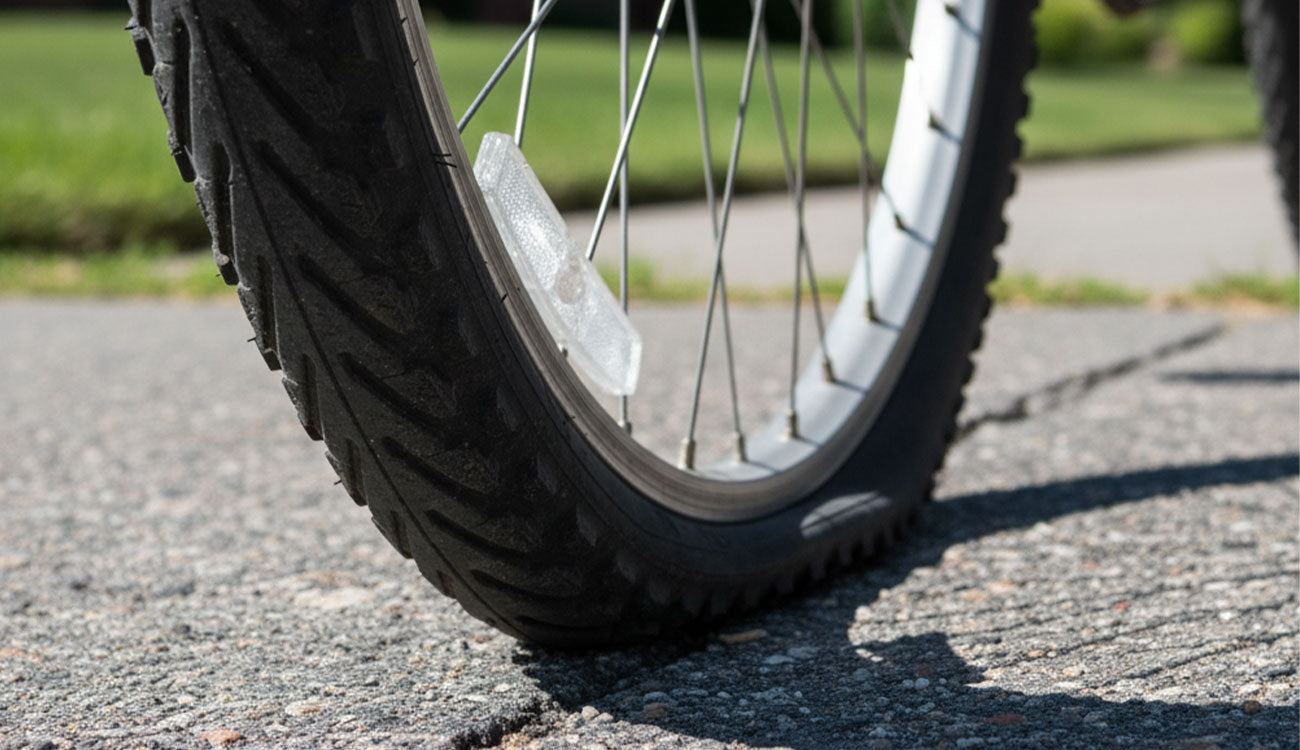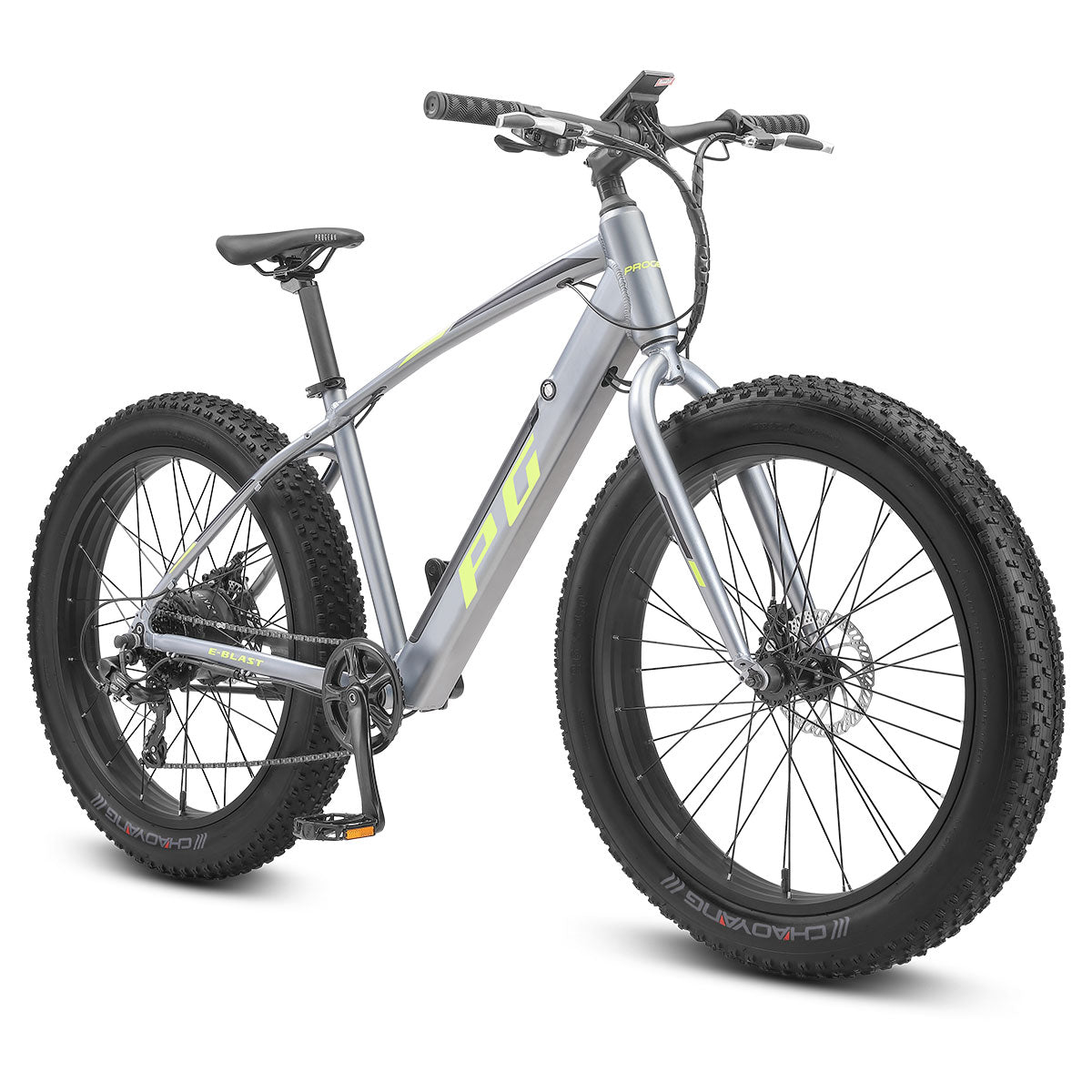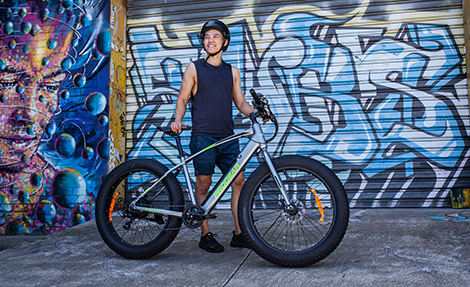
BMX and mountain biking are two of the most popular off-road activities, with fans drawn to the unique thrills offered by these specialised rides. Join us as we dissect the nuanced differences, advantages and disadvantages that define BMX and mountain biking.
What is BMX?
Bicycle Motocross, or BMX, traces its origins back to the late 1960s, stemming from the exhilarating world of motocross racing. These specialised bikes, compact in frame with smaller wheel sizes, have since evolved into a dynamic force on their own. The design of BMX bikes prioritises agility and manoeuvrability, making them the preferred choice for high-speed racing and gravity-defying stunts. The history of BMX is woven with a spirit of competition and a thirst for adventure, attracting riders who crave the adrenaline rush of pushing boundaries. For those eager to explore the world of BMX, our curated collection awaits you here, promising a great selection of high-quality models.
Advantages of BMX Bikes

BMX bikes offer a multitude of advantages that resonate with riders seeking excitement and versatility. One of the primary merits lies in their lightweight frames, designed for swift manoeuvres and effortless control. This attribute not only enhances agility but also allows riders to execute gravity-defying tricks and jaw-dropping jumps with finesse. The inherent nimbleness of BMX bikes is a key factor in their popularity, particularly among the youth and urban riders who relish the dynamic, fast-paced nature of these bikes.
Disadvantages of BMX Bikes
BMX bikes come with certain limitations that riders should be mindful of. The smaller size inherent to BMX frames, though contributing to agility, can pose a drawback when it comes to comfort during extended rides. BMX bikes are purpose-built for specific disciplines, which results in limited terrain versatility compared to other bike types. Their design, tailored for tricks and jumps, might not be the ideal choice for those seeking expansive off-road adventures. The compact frame may also lead to potential discomfort during prolonged rides, making them less conducive to leisurely journeys. It's essential for riders to weigh these limitations against their specific preferences and intended use, ensuring that the exhilarating benefits align with their cycling aspirations.
What Is a Mountain Bike?
Mountain bikes are purpose-built to conquer the challenging landscapes of off-road cycling. The very essence of a mountain bike lies in its robust design, crafted to withstand the rigors of uneven terrains and unforgiving trails. Robust frames are a defining feature, providing durability and stability, crucial for navigating rocky paths and steep descents. Complementing these frames are the wide tires, designed to grip varied surfaces and maintain control in unpredictable conditions. Where the trail gets tough, mountain bikes shine brightest, thanks to their enhanced suspension systems. These systems absorb shocks and bumps, ensuring a smoother ride over uneven terrain. For those eager to explore the untamed, our curated collection of mountain bikes awaits your discovery here.
Advantages of Mountain Bikes

Mountain bikes offer advantages for off-road enthusiasts and nature lovers alike. Durability is a key feature, with sturdy frames designed to withstand the punishing demands of rough terrains, making mountain bikes reliable companions for the intrepid adventurer. Their versatility in rough terrains is unmatched, providing riders the freedom to explore trails, rocky paths and wooded landscapes with confidence and control. Elevating the off-road experience are the advanced features, including superior suspension systems that absorb shocks and vibrations, delivering a smoother ride even on the most challenging trails. Furthermore, the inclusion of sophisticated gear systems equips riders with the flexibility needed to conquer varying inclines and terrains. Mountain bikes empower riders to navigate the wilderness with unparalleled ease and precision.
Disadvantages of Mountain Bikes
Mountain bikes are not without their trade-offs. One significant drawback lies in their heavier build, a characteristic necessary for durability and stability on challenging terrains. This weight can be a factor for riders who prefer a lightweight feel, especially during prolonged rides or when navigating less demanding landscapes. Mountain biking can also come at a higher cost, reflecting the advanced engineering, top-tier materials, and specialised features required for conquering the rugged outdoors. The complexity of maintenance is another consideration, as the sophisticated suspension systems and gear setups demand more attention and expertise compared to simpler bike models. As riders weigh the thrill of off-road exploration against these drawbacks, it becomes imperative to find a balance that aligns with individual preferences, riding aspirations and budget considerations.
Key Differences Between BMX and Mountain Bike
The distinction between BMX bikes and mountain bikes lies in their fundamental design elements, steering riders toward different realms of adventure. BMX bikes, characterised by compact frames and smaller wheels, are better for agility in tricks and jumps, making them the preferable urban riders and stunt enthusiasts. Conversely, mountain bikes, with their larger frames and wheels, have greater stability and durability, excelling in navigating the challenging terrains of off-road trails. The braking systems, gears, and suspension setups diverge, catering to the unique demands of each discipline. Whether it's the nimble manoeuvres of the urban landscape or the rugged conquests of untamed trails, these key differences guide riders in selecting the bike that aligns with their preferred style of cycling and the thrilling experiences they seek.
Frame

The heart of any bike lies in its frame, and in comparing BMX and mountain bikes, distinct differences in materials, size and build significantly influence their performance across varied terrains. BMX bikes showcase compact frames, typically crafted from lightweight materials like chromoly steel or aluminium. This design optimises agility, enabling riders to effortlessly execute tricks and jumps. In contrast, mountain bikes have larger frames, often constructed from durable materials such as steel. The robust build of mountain bike frames enhances stability and durability, crucial for withstanding the rigors of off-road trails. The size discrepancy between BMX and mountain bike frames is evident, with BMX frames favouring flexibility and responsiveness, while mountain bike frames provide a more solid foundation for conquering challenging landscapes.
Wheels

The wheels of a bike are its literal and figurative connection to the terrain, and in contrasting BMX and mountain bikes, the disparities in size and design play a defining role in dictating stability, speed and adaptability across diverse landscapes. BMX bikes have smaller wheels, typically ranging from 16 to 20 inches in diameter, though some can be larger. This diminutive size enhances agility, allowing riders to execute precise tricks and lightning-fast turns. On the other hand, mountain bikes have larger wheels, often 26 inches or more, designed to roll over obstacles with greater ease and maintain stability on uneven terrains. The impact on speed is noteworthy, as smaller BMX wheels favour quick acceleration and deceleration, ideal for urban landscapes and skate parks. The larger wheels of mountain bikes contribute to a smoother ride over rocky trails and varied surfaces.
Braking

The braking systems employed by BMX and mountain bikes are a critical aspect that directly influences rider safety and control, with each type tailored to suit their specific riding conditions. BMX bikes typically use powerful linear-pull brakes, providing riders with precise control and responsiveness during tricks, jumps, and quick manoeuvres. These brakes excel in urban landscapes and skate parks, where rapid stops and intricate control are important. In contrast, mountain bikes often feature disc brakes, renowned for their enhanced stopping power and reliability in challenging off-road conditions. Disc brakes perform exceptionally well in wet or muddy terrains, offering consistent braking performance even on steep descents.
Gears
BMX bikes typically use a straightforward approach, often featuring a single-speed drivetrain. This simplicity aligns with the nimble and acrobatic nature of BMX riding, where quick acceleration and uncomplicated gear shifting are essential for executing tricks and jumps. Mountain bikes have a more intricate approach, equipped with multiple gears to accommodate the varied inclines and terrains encountered in off-road environments. The presence of gears empowers mountain bikers to effortlessly navigate steep ascents and swift descents, ensuring a versatile and efficient riding experience. The choice between the gear systems of BMX and mountain bikes boils down to the rider's preference, riding style and the diverse landscapes they intend to conquer.
Suspension

BMX bikes may have minimal or no suspension. This lack of suspension contributes to a more rigid frame, ideal for precise landings and responsive control during acrobatic manoeuvres. Mountain bikes, however, are equipped with robust suspension systems designed to absorb shocks and vibrations encountered on uneven off-road trails. These suspension setups, including front and sometimes rear suspension, provide a smoother ride, enhance traction and ensure better control over challenging terrains.
How to Decide Which One for You?

Deciding between a BMX and a mountain bike hinges on several key factors that shape your riding experience. For those inclined towards mastering tricks and jumps in urban environments, a BMX bike offers agility and manoeuvrability, making it ideal for riders at various skill levels. On the other hand, if your aspirations lean towards conquering off-road trails and varied terrains, a mountain bike's stability, durability and advanced features provide a smoother ride in the great outdoors. Consider your skill level, intended use, personal preferences for terrain and manoeuvrability, as well as your budget constraints. Explore our collection here to find the perfect bike that aligns seamlessly with your riding aspirations.
Ready to Ride? Choose Your Perfect Bike at Progear Bikes Today!
Your journey to the perfect ride begins with our curated collection at Progear Bikes. Utilize the information provided in this guide to make an informed decision tailored to your skill level, riding aspirations and terrain preferences. Ready to embark on thrilling rides? Click here to dive into our diverse selection. Your next cycling adventure starts with Progear Bikes.





















